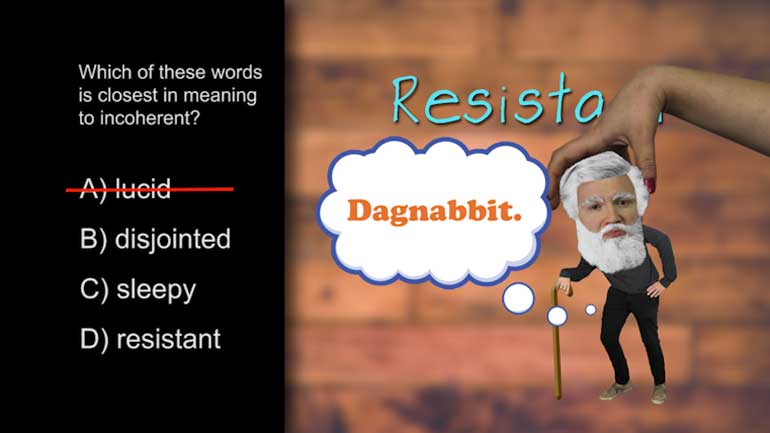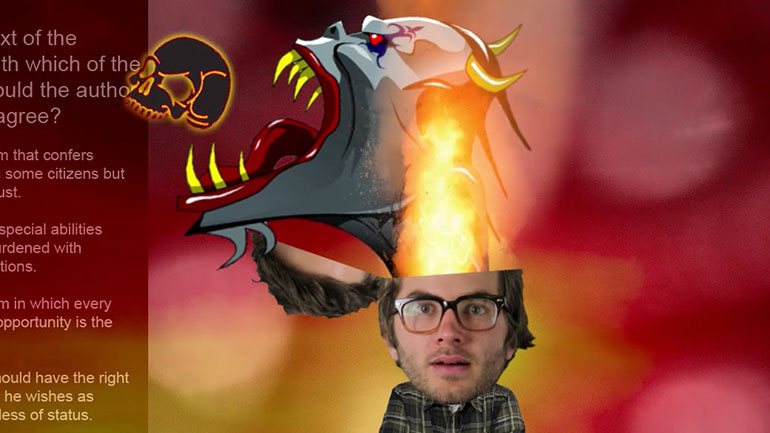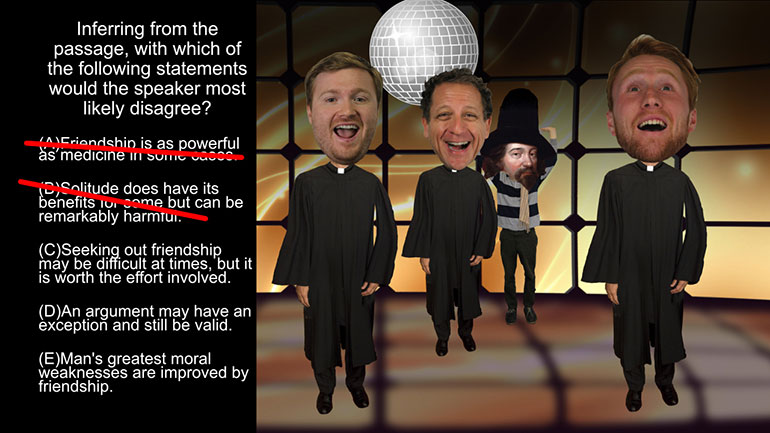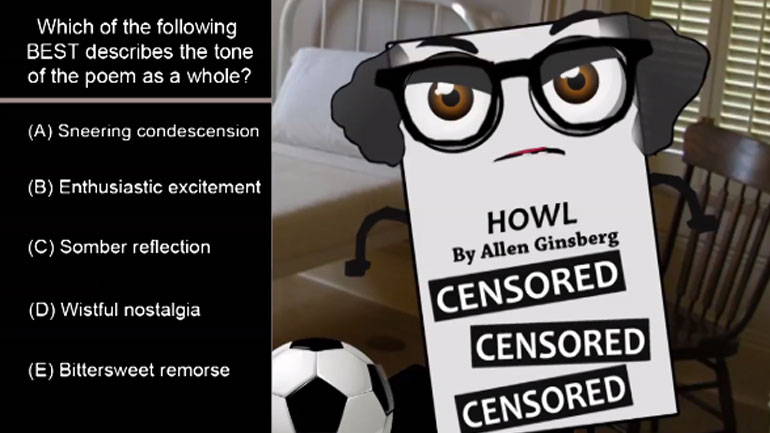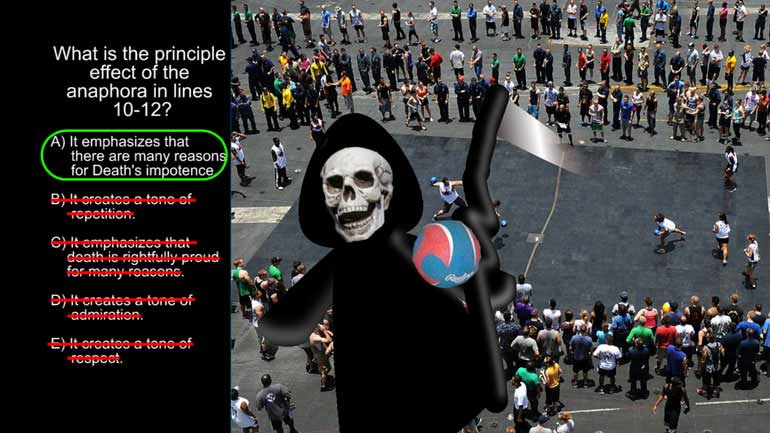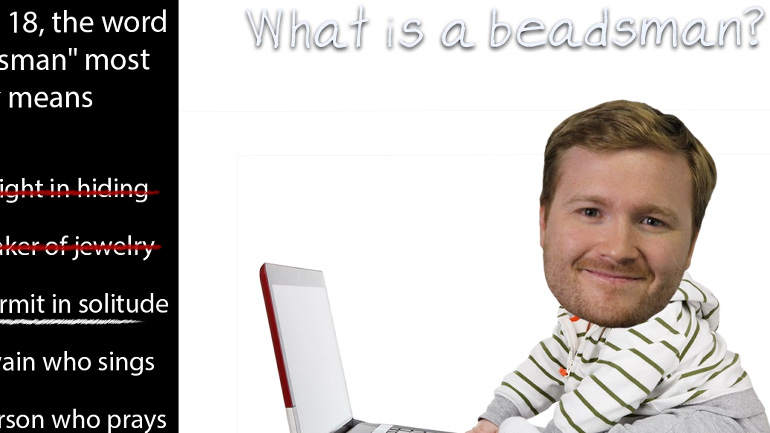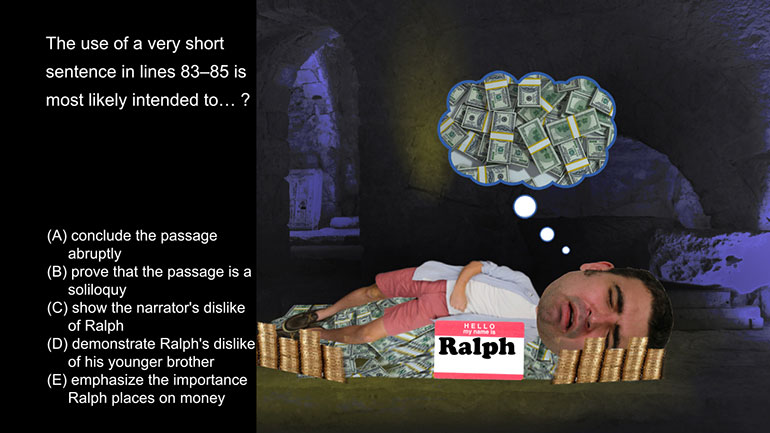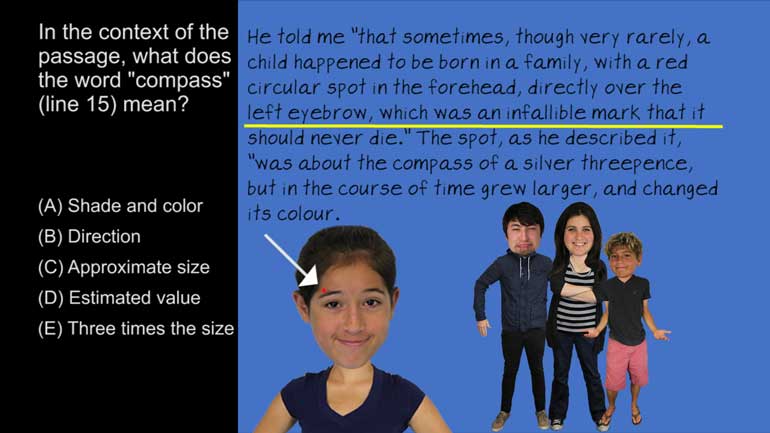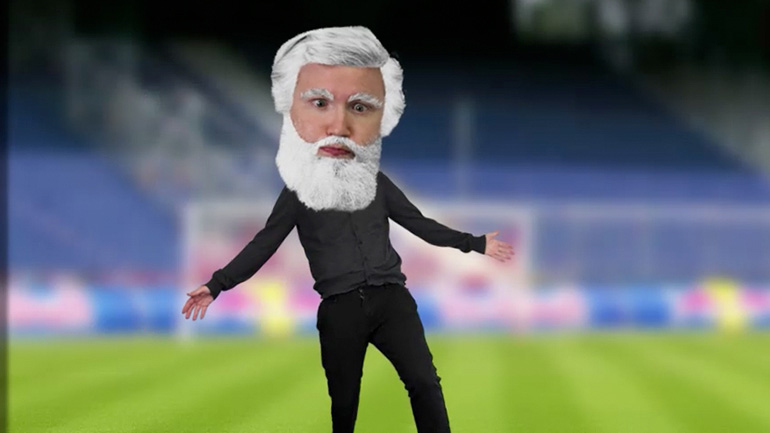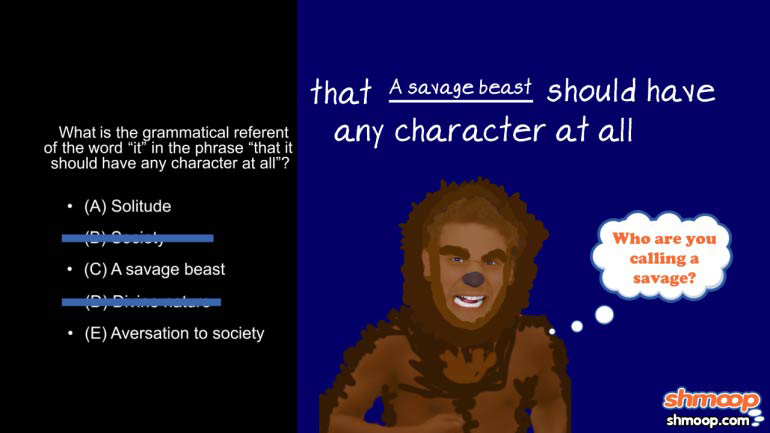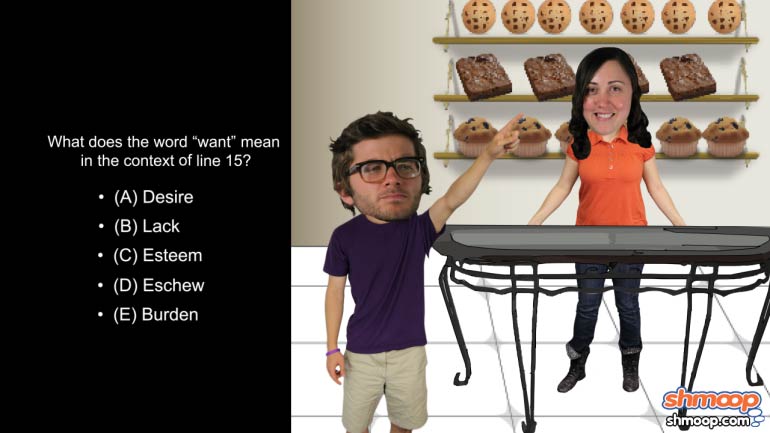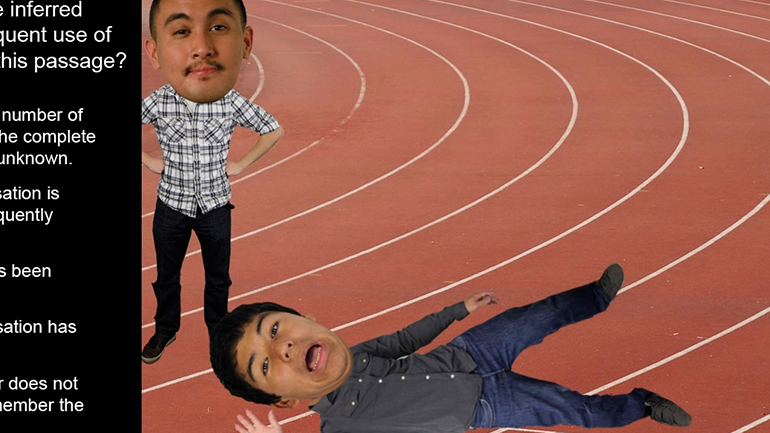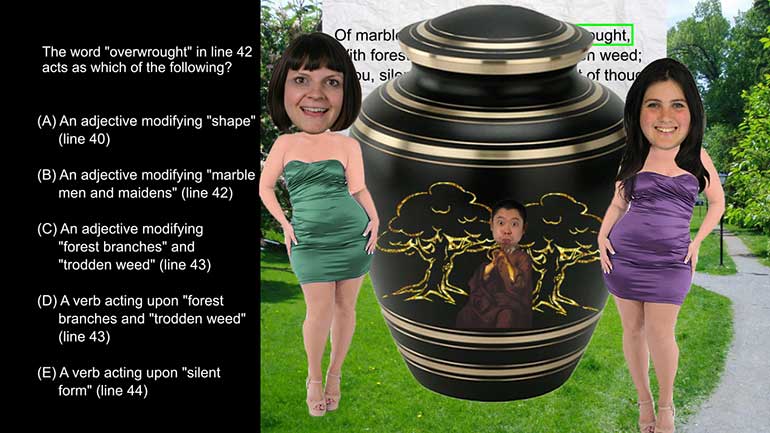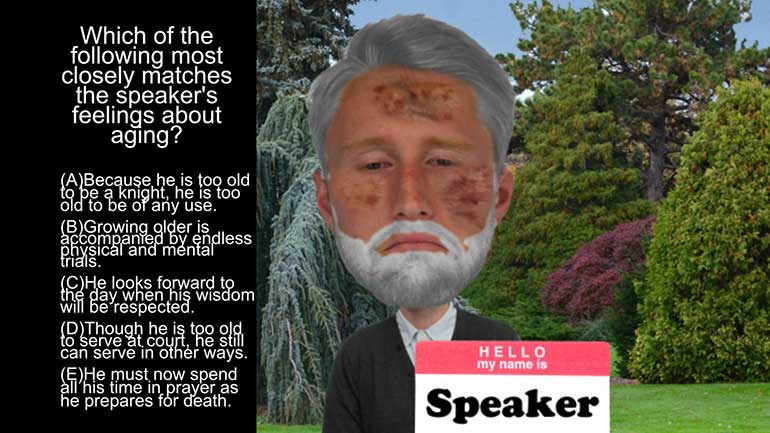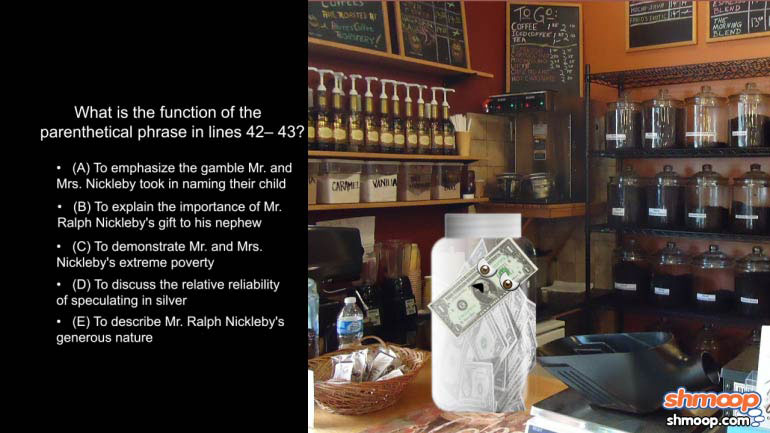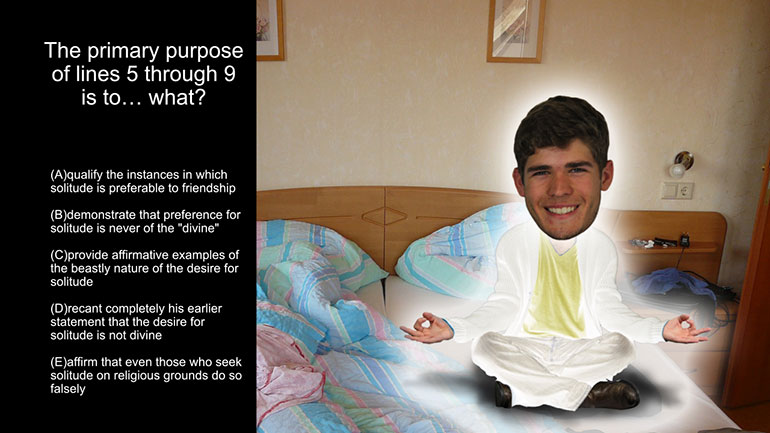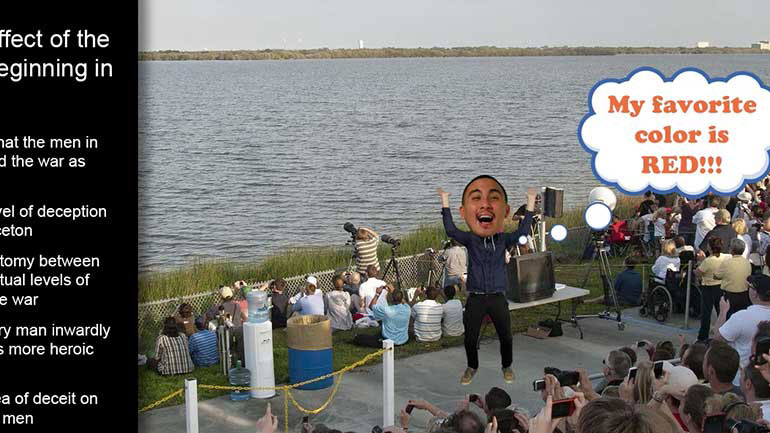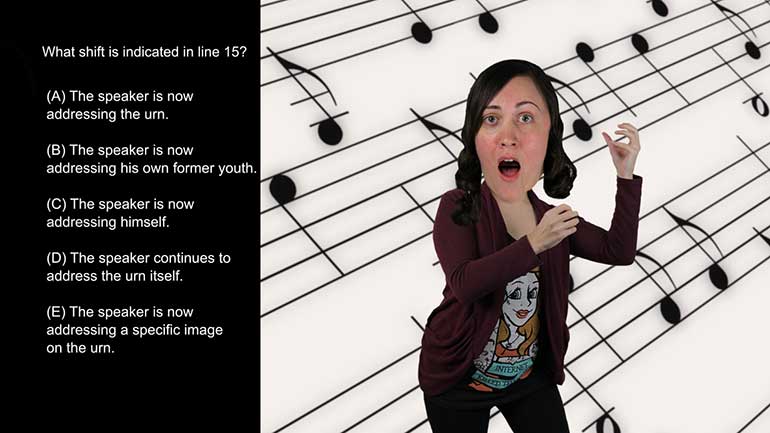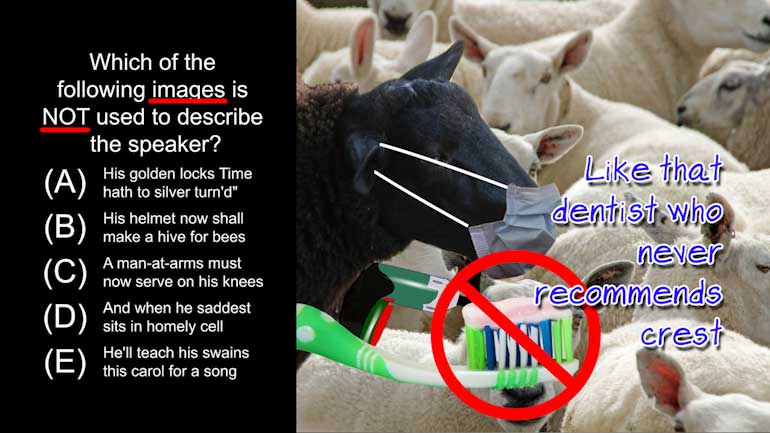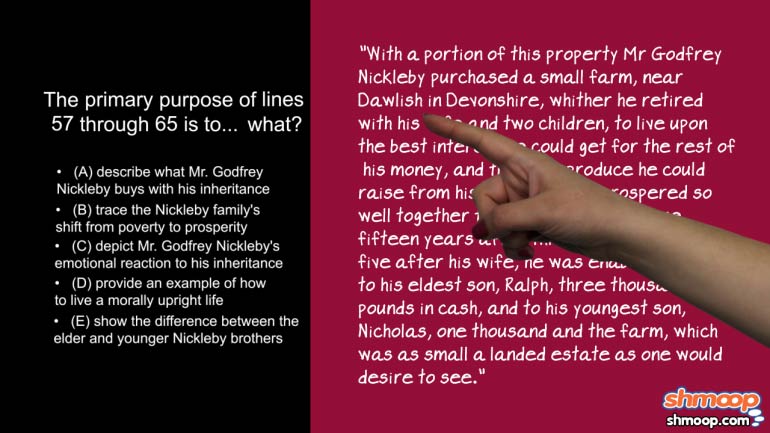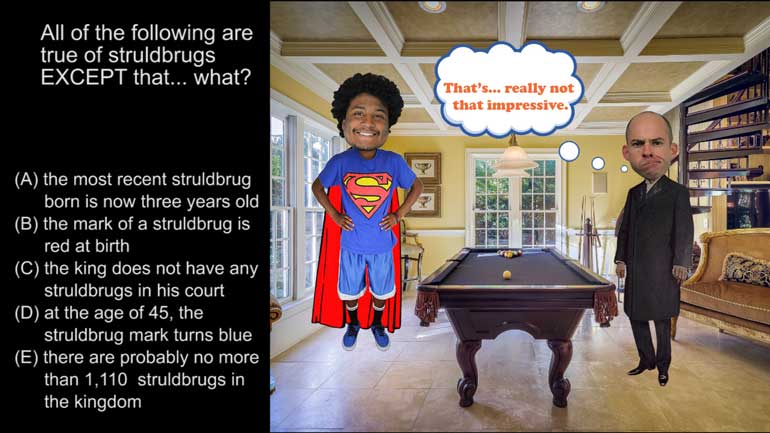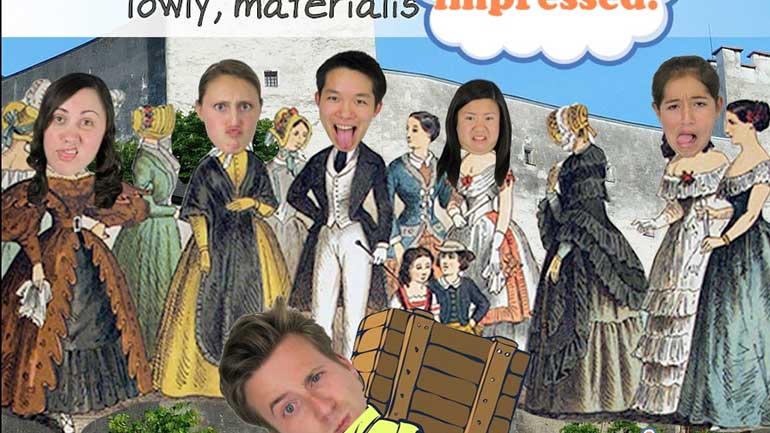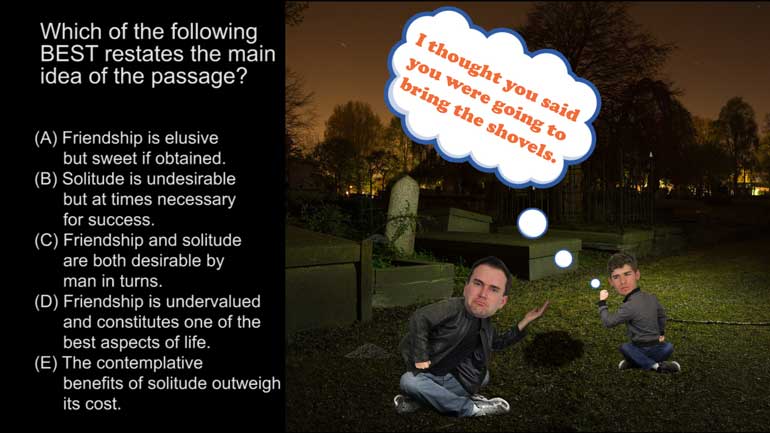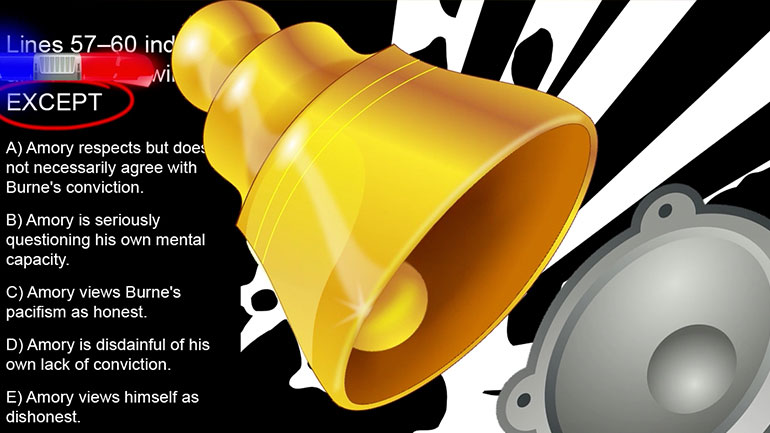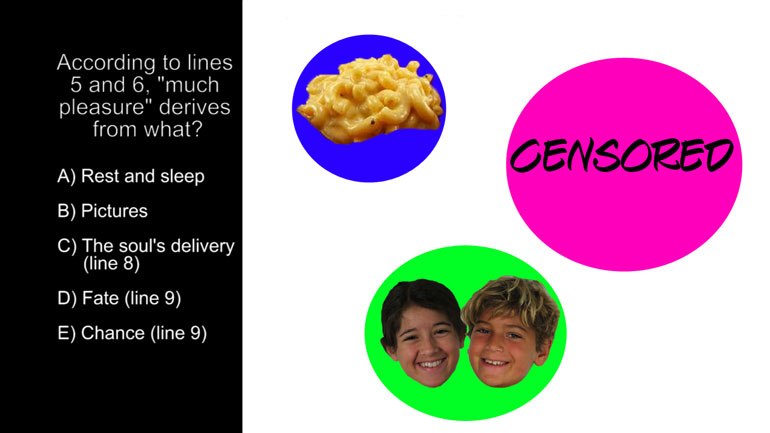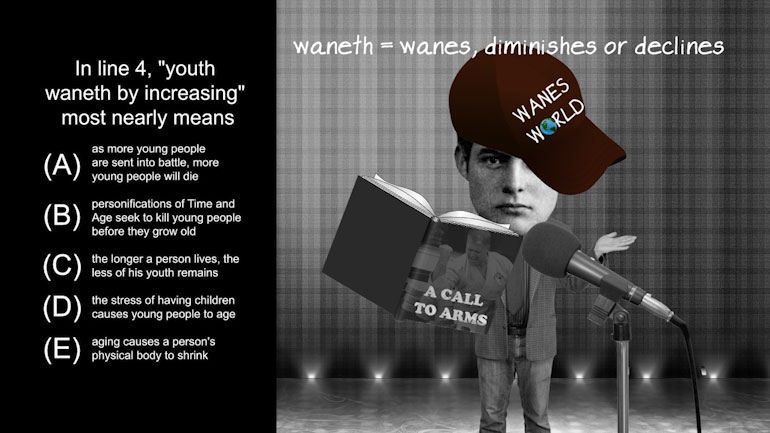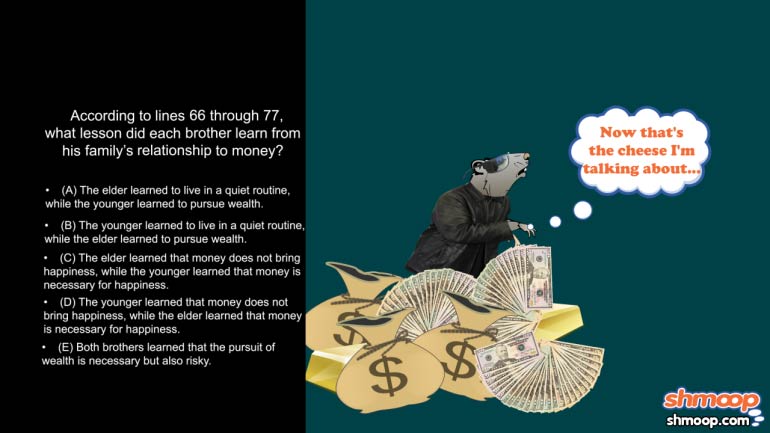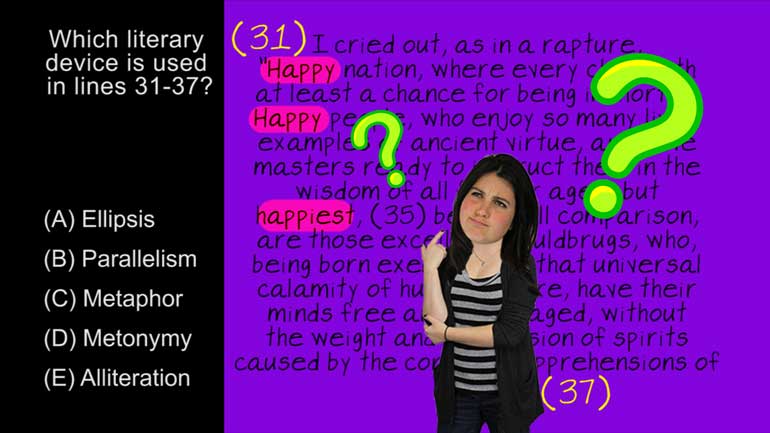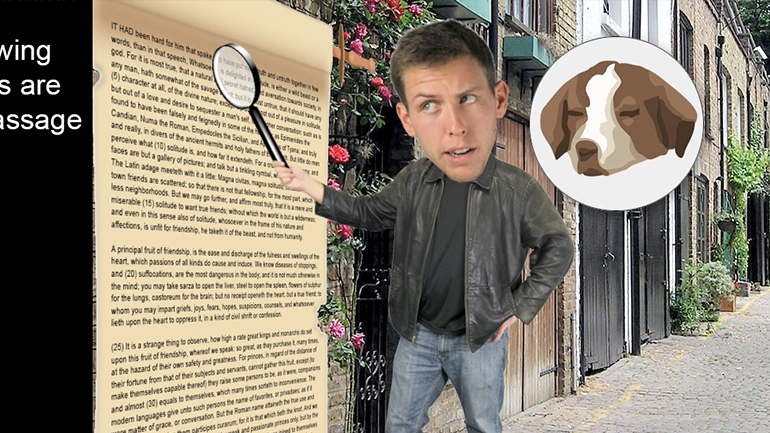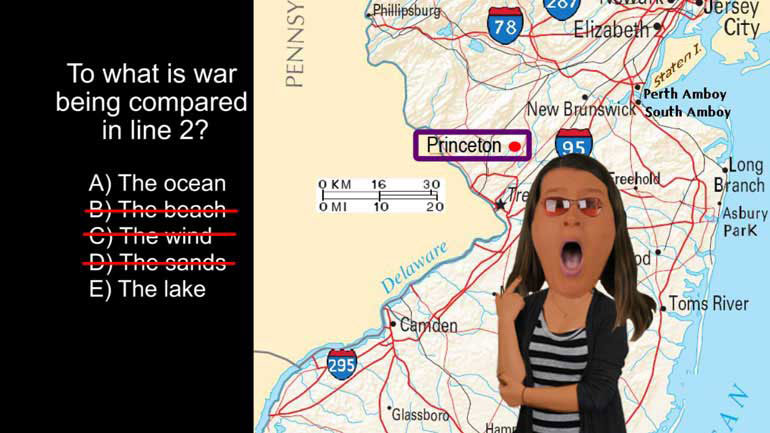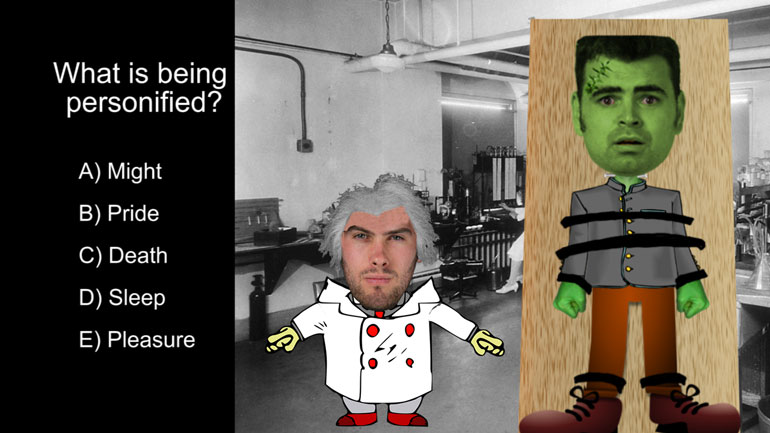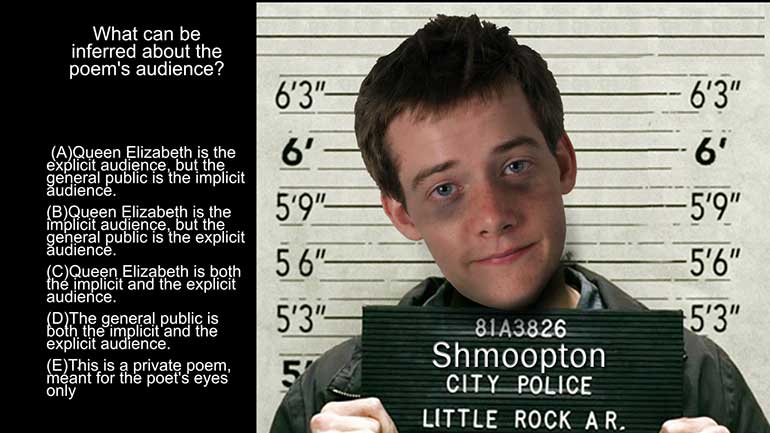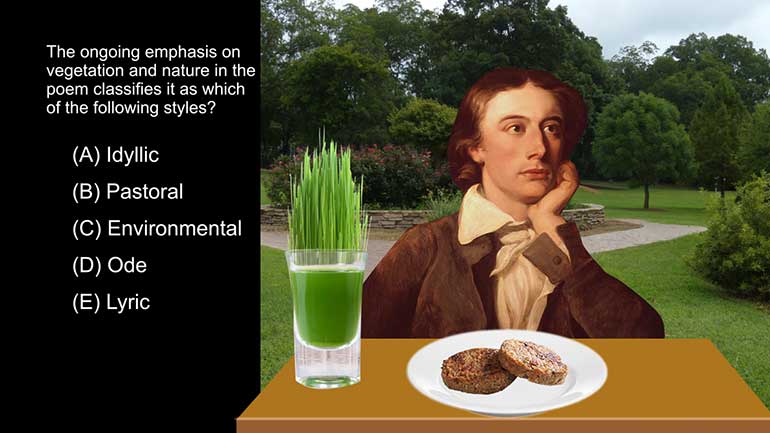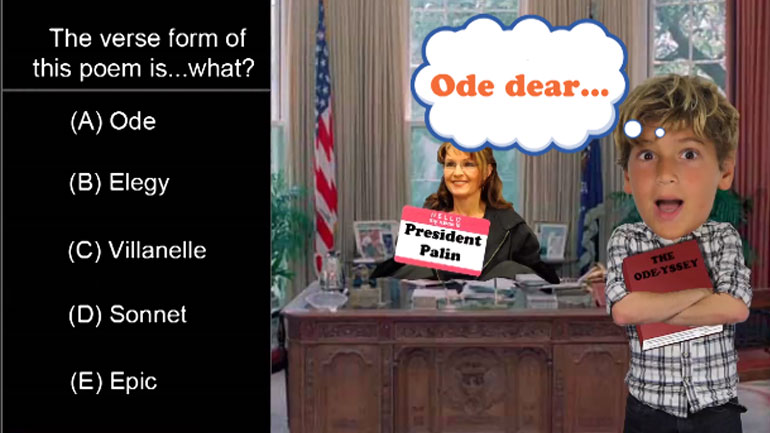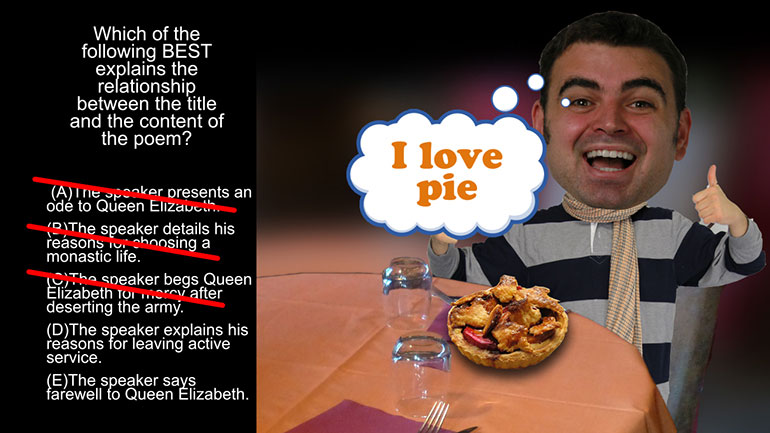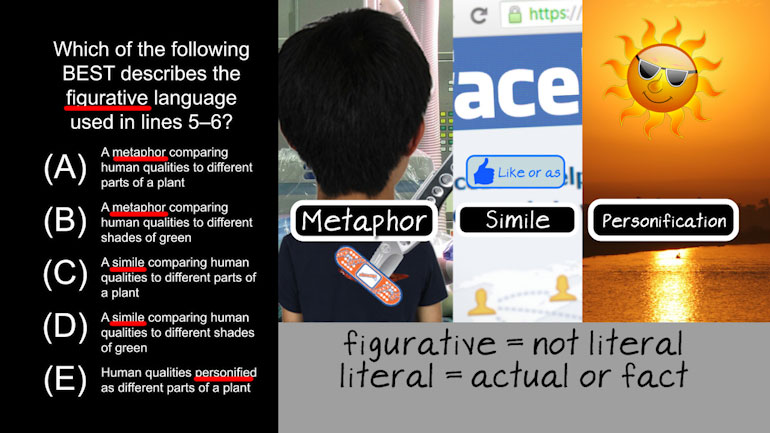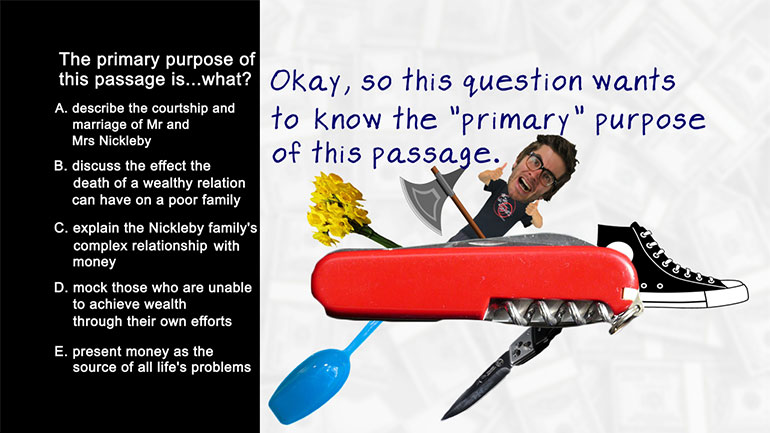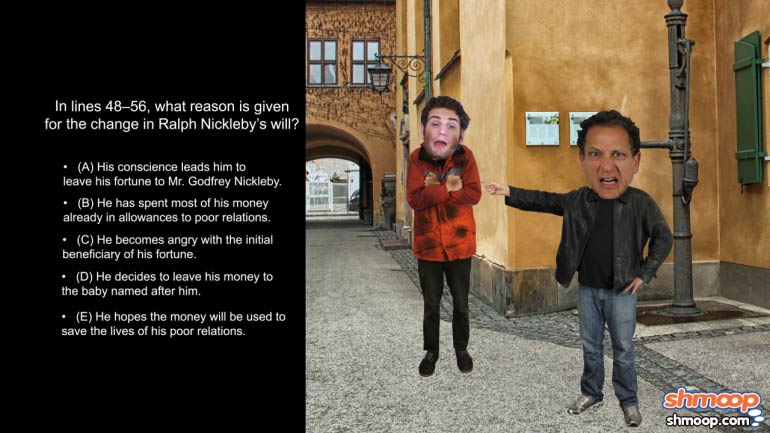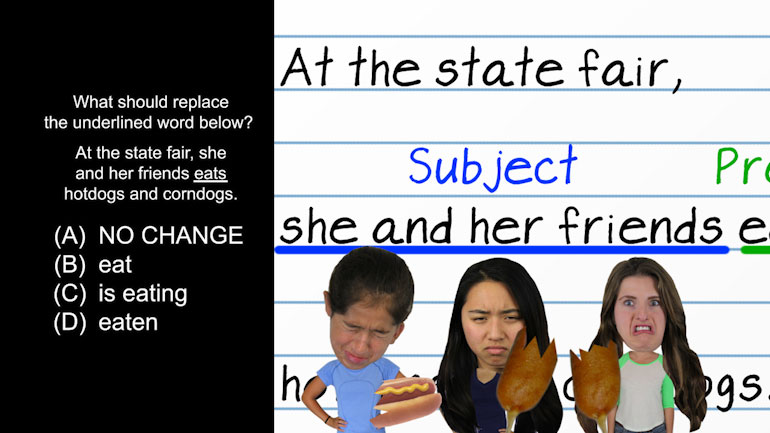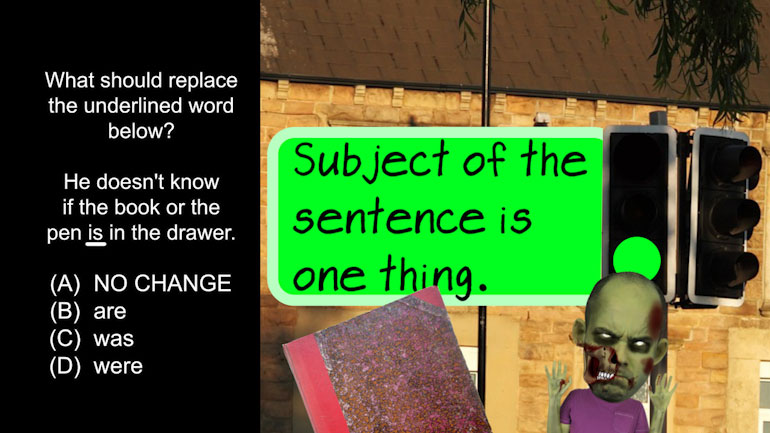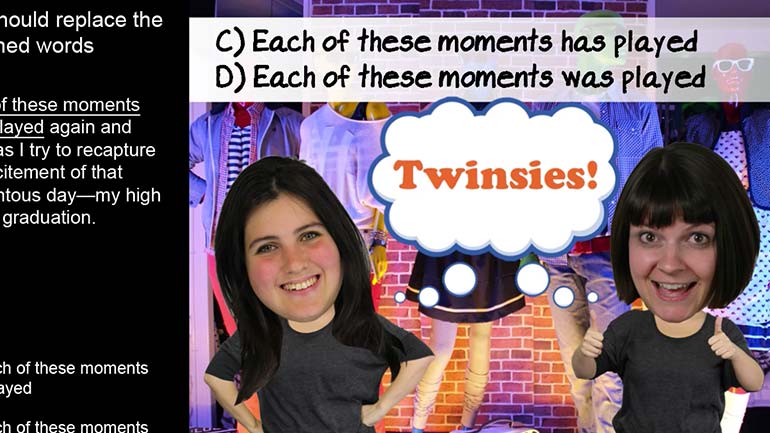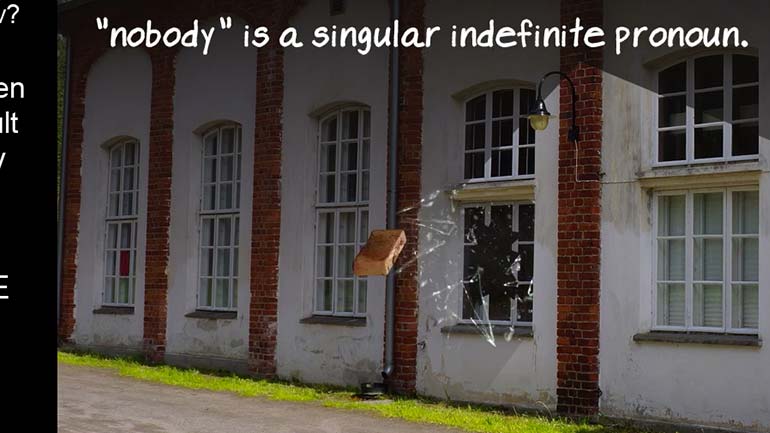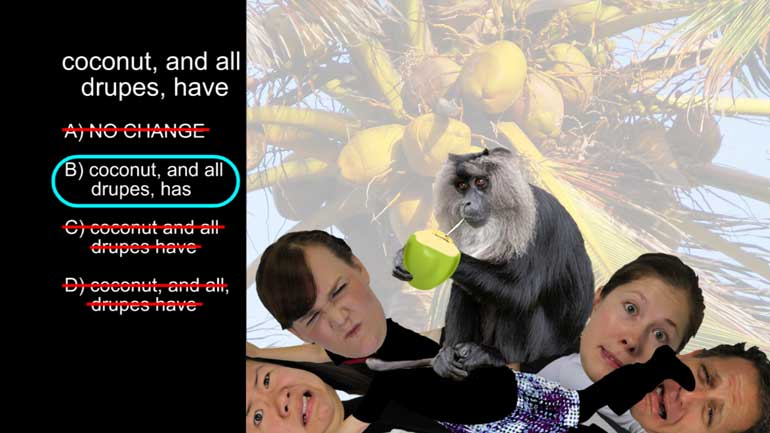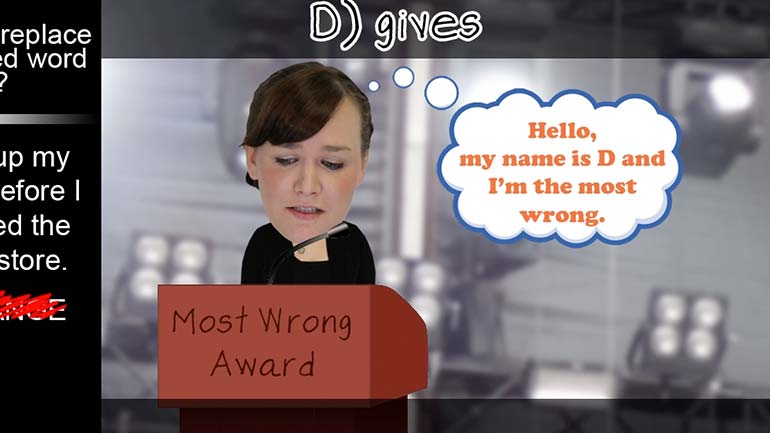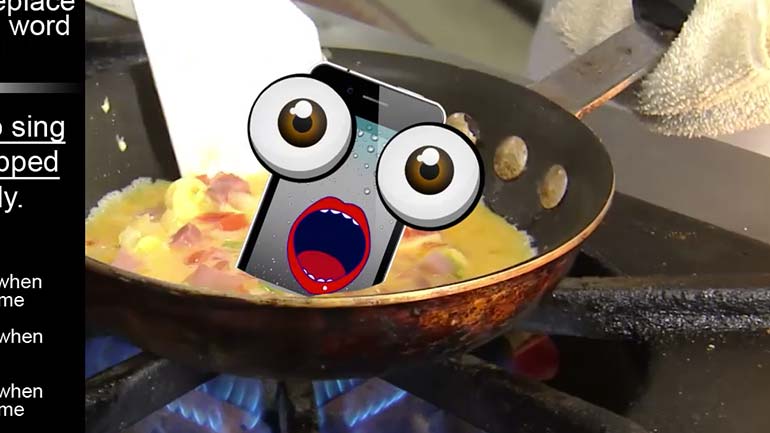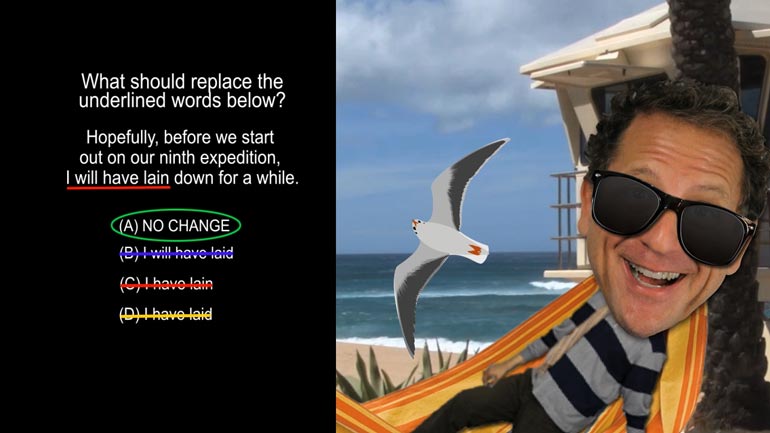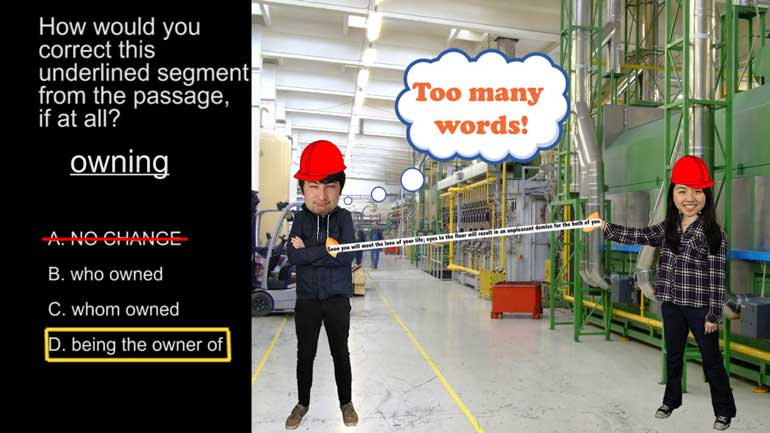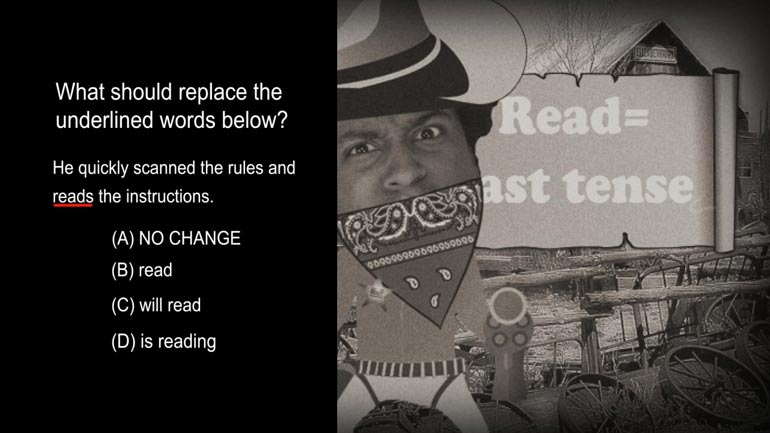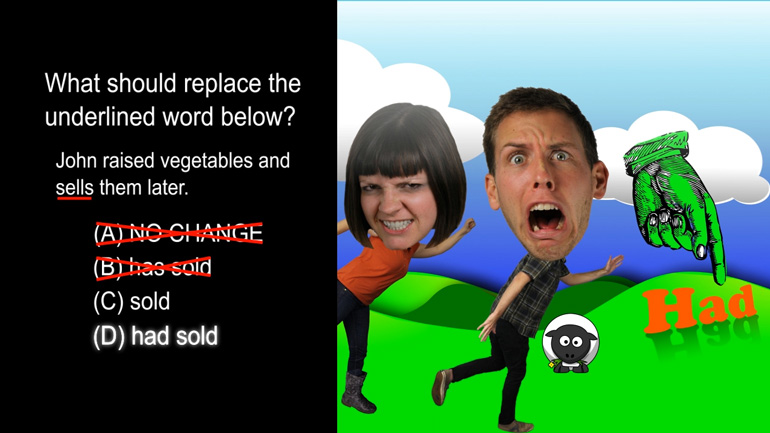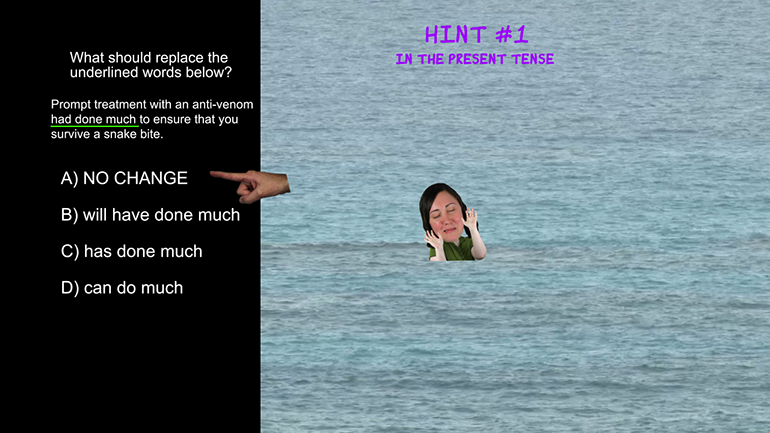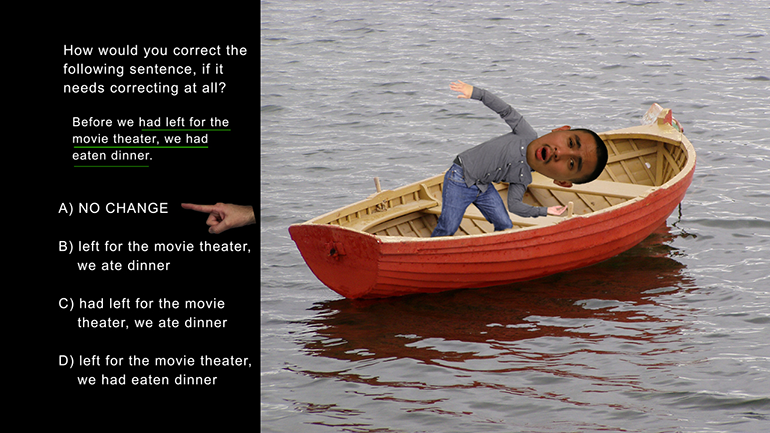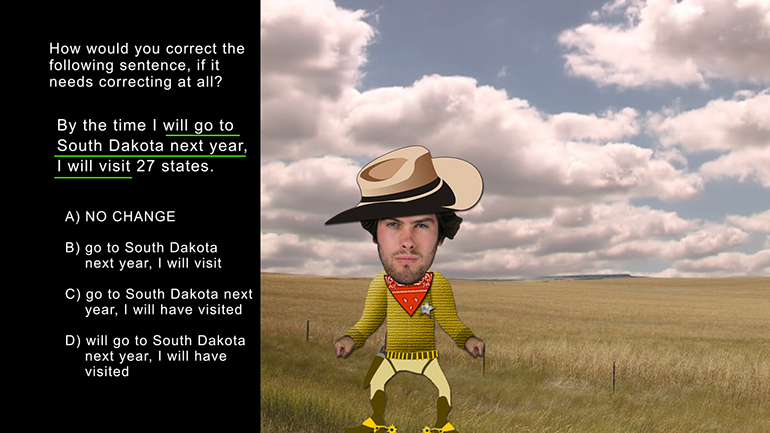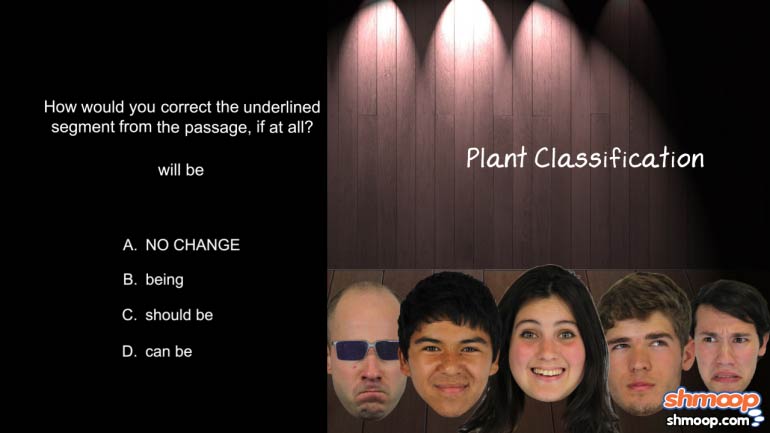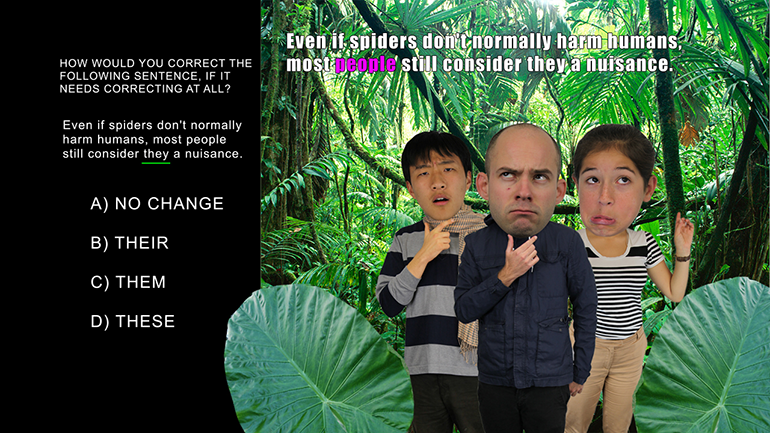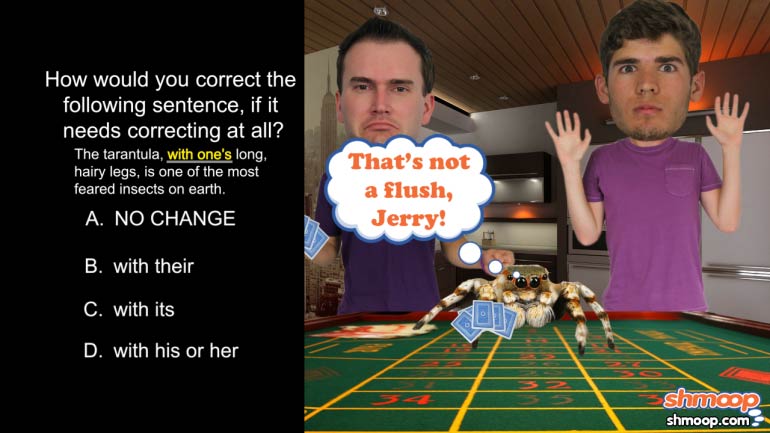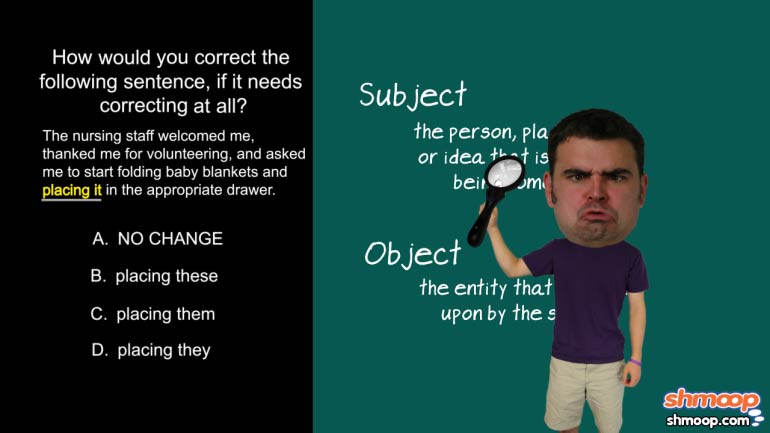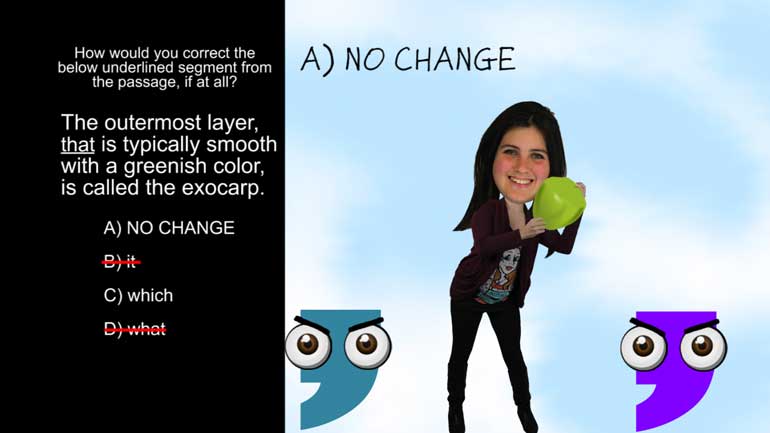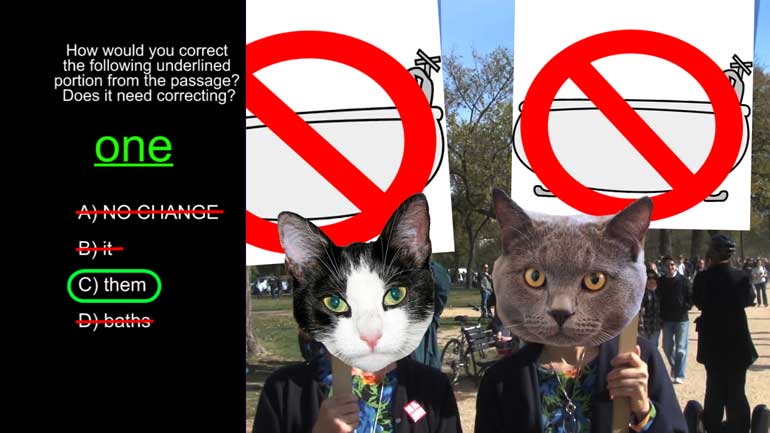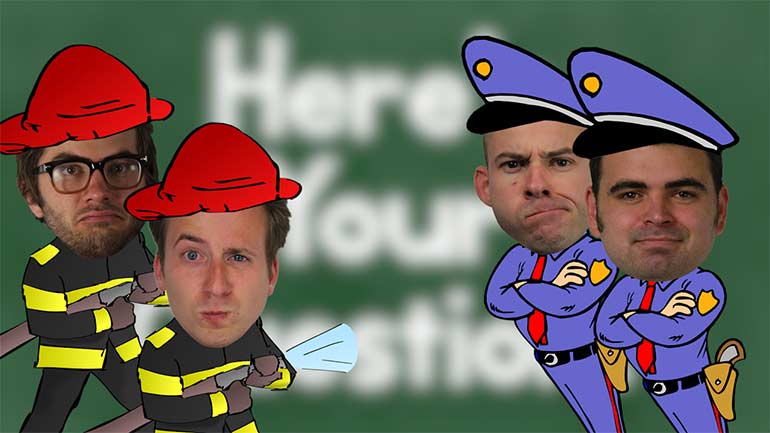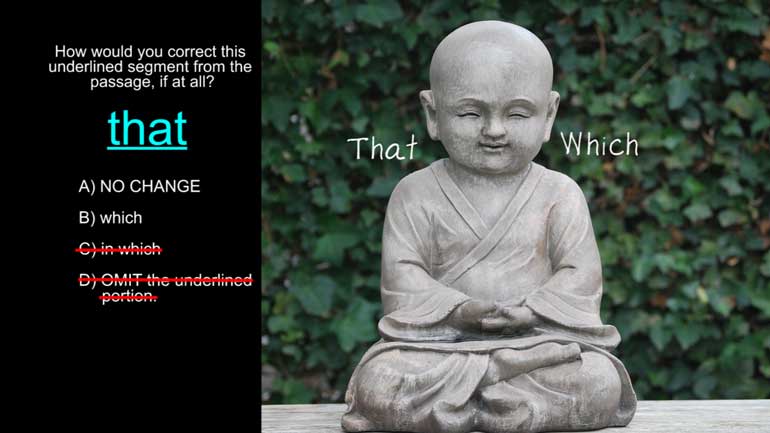ShmoopTube
Where Monty Python meets your 10th grade teacher.
Search Thousands of Shmoop Videos
English Videos 234 videos
ASVAB Word Knowledge: Word Roots, Prefixes, and Suffixes Drill 1, Problem 1. Which of these words is closest in meaning to incoherent?
AP English Literature and Composition 1.4 Passage Drill 1. Which of the following best describes the speaker's attitude towards immortality?
AP English Literature and Composition 1.5 Passage Drill 1. In the third paragraph, how does the author foreshadow a coming tone shift?
ACT English 4.7 Passage Drill 177 Views
Share It!
Description:
ACT English: Passage Drill 4, Problem 7. Which form of "own" works best in this sentence?
Transcript
- 00:03
Here’s your Shmoop du jour, brought to you by the Hong Kong Noodle Company.
- 00:07
Which went out of business when King Kong Noodle Co. squished it flat.
- 00:22
How would you correct this underlined segment from the passage, if at all?
- 00:26
owning?
- 00:29
And here are the potential answers...
Full Transcript
- 00:34
The second part of the sentence is a modifier for "a Chinese-American named David (Tsung) Jung."
- 00:42
(No relation to Carl Jung, we’re guessing...but crazier things have happened.)
- 00:46
It’s this modifier’s job to describe Jung by telling us that he owned
- 00:52
the Hong Kong Noodle Company in L.A.
- 00:54
Currently, however, the modifier just isn’t getting the job done.
- 00:57
Choice (A) suggests the word “owning,”
- 00:59
but this makes it sound like Jung currently owns the Company.
- 01:02
The passage makes it clear that fortune cookies were invented a long time ago, so we highly
- 01:06
doubt Jung is still on the planet. Hopefully, he’s still making fortune cookies in that
- 01:11
big noodle company in the sky.
- 01:15
If context weren’t enough to cut this option, the verb “invented” also makes it clear
- 01:20
that we should speak of Jung in the past tense. Choice (A) is officially nixed.
- 01:25
Option (D).
- 01:26
(D) gives us the phrase “being the owner of.”
- 01:29
This has the same present tense connotations as (A), so we’re sure it’s wrong.
- 01:34
It’s also too wordy, which Jung would hate if the succinct messages in fortune cookies
- 01:38
are an indication of his literary taste.
- 01:42
We’ve narrowed our options down to (B) and (C).
- 01:45
Both are in the past tense, so they’ve got that going for them.
- 01:47
However, they’re having a disagreement over the use of the pronouns “who” and “whom.”
- 01:53
A lot of people get mixed up with this, but it’s pretty simple when broken down.
- 01:56
The trick is knowing that “who” is in the subjective case and “whom” is in the object.
- 02:06
Subjective? Objective? Whaaa? No worries; it’s simple.
- 02:10
The subject of a clause is the person, place, or thing that’s doing something, while the
- 02:14
object is the person, place, or thing having something done to it.
- 02:21
Take this sentence for example: “Zoe loves her pet chinchilla.”
- 02:25
Zoe is the one doing the loving, so she’s the subject.
- 02:29
Her pet chinchilla, on the other hand, is the one receiving the love, making it the object.
- 02:34
(We’re not sure if the chinchilla loves Zoe, but it’s probably none of our business.)
- 02:38
OK, let’s zoom back to the Hong Kong Noodle Company and figure out this who/whom thing.
- 02:43
Both of these pronouns are trying to stand in for Jung, right?
- 02:46
We’ll sub in Jung’s name and read the clause out loud to help us determine if the
- 02:51
blank requires the subjective or objective case.
- 02:55
“Jung owned the Hong Kong Noodle Company in Los Angeles.”
- 02:58
Here, Jung is the subject because he’s the one owning something, while the Hong Kong
- 03:03
Noodle Company is the object because it’s the thing being owned.
- 03:07
Since Jung is the subject, the pronoun that stands in for him has to be in the subjective case.
- 03:12
Thus, we declare choice (B) the correct answer
- 03:14
because the sentence requires the subjective pronoun “who.”
- 03:17
We also need to stop binge watching Dr. Who,
- 03:20
but that’s a personal struggle we’ll deal with on our own.
Related Videos
ACT English: Punctuation Drill 2, Problem 2. Where should the semi-colon be placed?
ACT English: Punctuation Drill 3, Problem 1. How should this sentence be changed so that it is grammatically correct?
ACT English: Punctuation Drill 3, Problem 2. How should we properly hyphenate the words in this sentence?
ACT English: Punctuation Drill 3, Problem 4. Which choice best formats this list of items?
ACT English: Punctuation Drill 2, Problem 1. Which choice of punctuation best completes the sentence?
